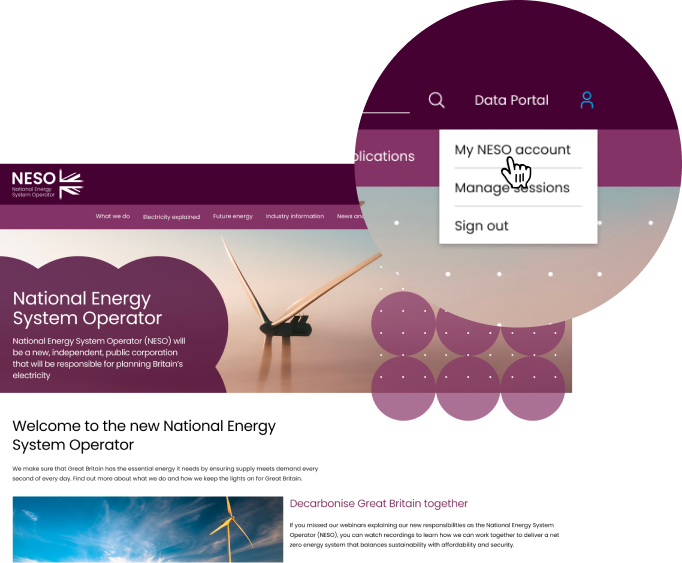A day in the life of: Mark Jones, Senior Black Start Engineer

Our colleagues are at the heart of the ESO, working hard to operate a safe and reliable electricity system all whilst supporting the transition to a greener, and more efficient system for future generations.
Mark Jones, Senior Black Start Engineer, gives an insight into his time at the ESO and his vital work on Black Start…
How long have you worked for National Grid ESO and what is your role?
I joined in 2011. It was actually a change in industry as I was made redundant after the last recession from a role working as a Technology Consultant focussing on Motorways.
At first it was just a stop gap, but I quickly realised I loved working for a company that makes a difference to the country by reducing carbon emissions.
When I first joined National Grid I worked in Planning, then went to Post Event System Review, Performance Excellence and then joined Black Start in 2016. I thoroughly enjoy Black Start and am proud to have led the successful NIC bid in 2018.
I love the variety of my current role.
I might be in a power station at 6am on a Saturday morning and then 2 days later in a suit meeting the UK government in Westminster.
I’ve even worked on code changes where I often feel more like a lawyer!
Can you tell us what Black Start is?
Everyday within National Grid ESO there are a thousand people working to keep the lights on for Great Britain. Black Start is the ultimate insurance policy.
Our team gives the control room services, strategy and training to be able to re-start a blacked-out grid.
We have a team of four engineers who spend everyday looking to re-start the system in the extremely unlikely event there is a full of partial shutdown of the grid.
We’ve never witnessed a full shutdown in GB and the most significant partial blackout was during the Great Storm of 1987.
Read more about whether Sky's COBRA series could be a genuine possibility.
Within the team we split up roles and regions. I look after Scotland and the North East and I’m responsible for new technology and innovation.
My colleagues look after Strategy, Statistical Modelling and Assurance, all engaging with BEIS, Scottish Government and Ofgem.
How do you manage Black Start day to day?
Black Start is managed day to day by the Control Room, who based upon the services we procure, will analyse their availability using processes we’ve designed.
If availability drops the Control Room will take action to make services available, which may involve dispatching a generator.
What does a typical week look like?
Our teams’ roles are hugely wide ranging. There are so many aspects to my job.
Firstly, I’m a Chartered Engineer looking at the new pipeline of projects technically and through the tender process 8 years ahead.
We make sure that across GB there are sufficient services so that there are power stations can self-start.
I also work with generators keep policies updated and test systems. We go out and work with them to test that capability.
We shut down circuits and the generator for them to have to re-start without any external electrical supplies. We include this in the network planning process to make sure we can shut down that generator without any system issues.
The role extends to leadership and stakeholder management. We work with the UK and Scottish Governments and Ofgem communicating where restoration is today, and looking at where we are taking it in the future. We also work closely with transmission and distribution network owners.
In addition to this we run detailed training programmes. We train the Control Room once every 18 months on a rolling cycle.
We include others in the training for better knowledge – DNOs control staff, transmission owners and of course our Control Room colleagues.
Learn more about how our colleagues in the Control Room handle the system.
The generator staff will get the training through doing the physical test in their generator's Control Room.
This shows them exactly what to do in the event of a Black Start.
Has COVID-19 impacted your role and way of working?
The role requires us to be quite flexible in work location so we were set up well with remote working and I’ve been working from home since March.
We’ve had to cancel a number of station tests and visits to carry out policy reviews. We put all site visits on hold so we’re now starting to plan if we can re-start these.We can do policy reviews remotely so we will start that again soon.
It’s great how flexible the company has been.
My wife works for Amazon leading a business unit so we share a lot of the parenting and schooling. We have two lovely boys who are 6 and 3, so we both cut our hours by half. This let us home school and look after the boys.
School holidays have helped us as our eldest has gone to holiday club which frees up some time.
We’ve been able to do so much more exercise because we’re not commuting.
My wife used to have a 4-hour daily commute and my commute was typically 3 hours to work with dropping off and picking up the boys. So instead of driving I’ll do some mountain biking. I think I’m fitter than I’ve ever been following lockdown!
What are you looking forward to now lockdown has eased?
I’ve been to see my family. The whole experience has reinforced how important family is.
